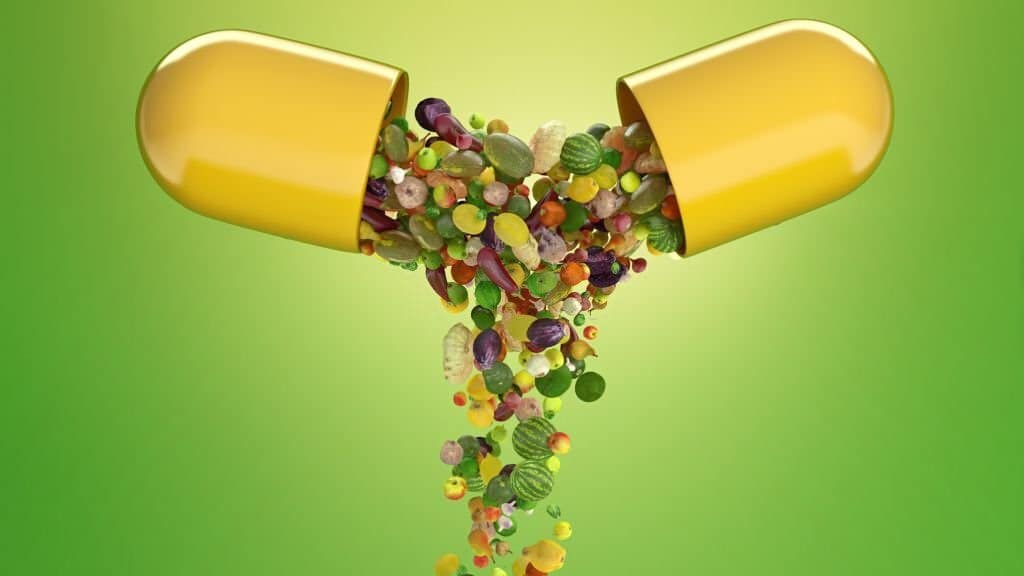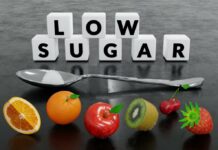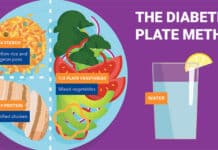We already know this article will rub some people the wrong way, but we think it’s an important topic that health providers and the health-conscious public should discuss. We’ve entered into a time when information is so readily available that, instead of being completely in the dark about our diseases (as in the past), everyone is just so overwhelmed with conflicting opinions that they have no idea what to do.
Ultimately, all this confusion will be a good thing as the truth will eventually reveal itself. Still, until then, we must simplify health matters and keep our understanding of human biology at the heart of patient care.
Let Food Be Thy Medicine
There’s a very popular quote by Hippocrates, the “Father of Modern Medicine,” circulating throughout the nutrition world. I’m sure you’ve seen it before:
“Let food be thy medicine and medicine be thy food.”
Hippocrates said a lot of things, and modern humans like to romanticize “ancient” traditions and practices as though our beloved historical figures knew something we’ve long forgotten.
Still, we can’t allow statements made 2,500 years ago to blind us from the discoveries of prevailing science. After all, during Hippocrates’ time, people knew almost nothing about human anatomy, and diseases were thought to be inflicted upon people by angry gods.
Hippocrates also said, “A physician without a knowledge of Astrology has no right to call himself a physician.” And I’m sorry, but I’m not about to start giving health advice based on a patient’s birth month.
Medicine, by definition, is the treatment of disease, and if we continue attempting to treat a patient’s diseases, we too will fail to get them well regardless of the methods used.
Treating Disease With Food
Many health providers take Hippocrates’ words to mean we should treat disease with food, but anyone who attempts to do so will quickly discover how confusing and difficult this is to accomplish. It’s just as confusing and difficult as treating disease with modern medicine because treating disease is treating effects, always.
It is shortsighted to think we can stimulate or inhibit body processes by ingesting nutrients in specific combinations. Food doesn’t work like synthetic chemicals, nor should we want it to.
Anyone who has ever healed from a disease process by changing their diet did so because they provided their body with the nutrients needed to heal itself and regain optimal function and balance.
The body uses food to create, nourish, and repair tissues and cells, not to alter the symptoms of the disease.
“You have X disease? Then you need to eat A, B, C foods,” this is not how we bring a body to wellness.
The Body Rarely Makes Mistakes
The body rarely makes mistakes. If body chemistry is not optimal, or an organ appears to be malfunctioning, we should always assume the system is trying to compensate for some kind of imbalance or stressor.
The body adapts intelligently to the nourishing lifestyle elements we deny and the toxins we force upon it, but these changes are not an error. The body is not broken. When the body breaks, that’s when a heart attack or stroke occurs.
For instance, insulin rises when blood sugar is high, and eventually, insulin resistance results. Is this a malfunction? No, the body becomes resistant to high insulin levels as a matter of homeostasis (balance) and protection.
The least effective natural approach is to advise a patient to eat foods that “lower” insulin or “reduce” blood sugar because high insulin is an EFFECT. To correct the problem, the patient needs to be educated about which foods and lifestyle practices allow the body to function normally, so that adaptation (and therefore imbalance) is unnecessary.
There is a giant chasm between the two methods of care.
The Futile Task of Treating Symptoms
So what is high blood pressure, high cholesterol, acid reflux, inflammation, allergies, or any one of a million different symptoms? They are EFFECTS, and attempting to treat effects with food is just as futile as treating effects with prescription drugs, yet somehow we feel justified because we’re using non-toxic (yet much less effective) substances.
Neither brings a body back to wellness.
No symptom is the cause of itself, and no symptom is a malfunction. Any change the body makes is in RESPONSE to one of two conditions:
Deficiency and/or toxicity.
Note: To be clear, when we say “deficiency,” we mean a lack of something the body genetically requires for proper function, such as proper nutrition, healthy movement, adequate rest, sufficient playtime, good mental hygiene, etc. “Toxicity,” on the other hand, would be defined as too much of something the body views as noxious, like processed food, food chemicals, prolonged stress, emotional trauma, injury, etc.
If blood pressure is high, there is an intelligent reason. Our endeavor shouldn’t be to treat high blood pressure but rather to bring the body back to a state of sufficiency and purity. If we succeed, blood pressure normalizes on its own, naturally.
Treating high blood pressure, either with food or prescription drugs, is futile when the goal is wellness.
Imagine you head outside for a brisk walk around the block. The body must adapt to this activity and therefore raises blood pressure. Is this a malfunction? No, it’s a response and a healthy one.
So why is it a malfunction that needs treatment when you’re just sitting at your desk, and your blood pressure is high? Shouldn’t we assume that a condition exists inside the body necessitating that change as a matter of preservation rather than being a mistake?
What Exactly is Disease?
The disease is nothing more than a list of changes the body has made in response to some kind of stressor (deficiency and/or toxicity). As a result, organs, tissues, and cells begin to act in a way that is outside homeostasis/balance.
Diabetes isn’t a physical thing. It doesn’t have a texture, weight, or take up space. The diagnosis “diabetes” simply describes a list of effects that all people with the condition exhibit.
So what good is it to treat diabetes? What do you accomplish by addressing the list of changes the body has made in response to deficiency and/or toxicity? The reversal of diabetes (or whatever) can only take place when the deficiency and toxicity have been resolved.
Wellness is then a natural and unavoidable outcome.
The Simplest Approach to Patient Care
When we approach health in this manner, the initial phases of a patient’s care become very easy. If someone is suffering from a disease, we know they are battling a combination of deficiency and toxicity, so our goal should be to bring them to a state of sufficiency and purity.
We set out to nourish that patient with the kind of lifestyle upon which all humans are genetically designed to thrive and remove the toxic aspects of that lifestyle (thereby removing the CAUSES). Then the body can return to wellness on its own.
Medicine has been treating the symptoms of the disease for decades and failing to make anyone well. We will achieve much better outcomes if we follow a different path. When I see a patient suffering from symptoms or illness, I see a body that is in distress and is trying to save itself as best it can.
In order to restore health to the masses, we have to learn what is genetically required for proper function and what elements in life are toxic and change what we’re doing accordingly.
This is the best way I know to return a patient to a state of balance and wellness.






